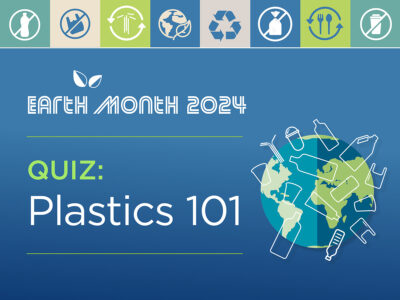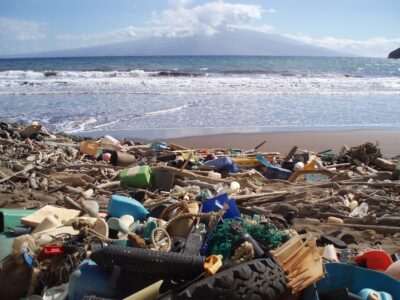April is Earth Month! In celebration, we’re making the science of the Earth Institute accessible through an ongoing Q&A on Instagram. We asked our Instagram followers, “What have you been wanting to ask a scientist?” and we got some really excellent questions. We then reached out to experts from across the Earth Institute to get those questions answered, and have been sharing them via Instagram Stories.
We will also be posting our Earth Month Q&A content right here on State of the Planet! Take a look below at a couple of Q&As, and stay tuned as we post more over the course of the month.
This Earth Month Q&A is also the kick-off of a new series on State of the Planet called You Asked, where we answer readers’ questions here on the blog. If you have a question for us, don’t hesitate to drop a comment below, message us on Instagram, or email us here. We’ll do our best to get your questions answered!
Question #1 is actually two in one:
Will the Anthropocene extinction spell the end of life on earth? Or will nature survive and only humans won’t?
When will the world really end?
Expert: Jason Smerdon, research professor at Lamont-Doherty Earth Observatory (LDEO), where he directs the PaleoDynamics Lab
Answer: Life will not end and it is unlikely that humans will go extinct as well. Biodiversity will nevertheless take a big hit. It is actually already taking a huge hit and it is reasonable to say that we are living through the sixth great extinction in our Earth’s history.
But just like the last five great extinctions, life will ultimately reset and evolve. Certainly on geologic timescales, life will recover and the niches left by the extinction of some species will be filled again. The evolutionary dice will once again be cast and a new web of life will emerge. If humans hang on to see that, who knows where or how they will participate in that web.
I guess the only caveat is whether we manage to trigger a runaway greenhouse effect on our planet like the one that occurred on Venus (where average temperatures are more than 800 F, high enough to melt lead). Such a scenario on Earth is very unlikely and speculative, but not beyond the realm of possibility, should CO2 levels reach thousands of ppm or in the event of a sudden and massive methane release. If such a scenario played out, it is difficult to imagine how much, if any, life could be sustained on our planet.
Question #2: Are photosynthesis and cellular respiration linked?
Expert: Earth Institute faculty member Dorothy Peteet, paleoecologist and botanist with LDEO and the NASA Goddard Institute for Space Studies.
Answer: Photosynthesis is the chemical process in the chloroplasts of plants that uses sunlight’s energy and carbon dioxide and water to produce sugar (glucose) and oxygen.
Cellular respiration is the chemical reaction that uses oxygen to help break down glucose, resulting in the products of carbon dioxide, water, and energy.
Thus they are opposite sides of the same equation.
Question #3: What is the hardest part about being an earth scientist? I hope to become one as well!
Expert: Pierre Dutrieux, assistant research professor in Ocean and Climate Physics at LDEO.
Answer: Difficulty is always a matter of perspective! Things that appear hard can often be easier than the alternative.
For example, if you want to become a scientist, but decide not to, maybe the job you will choose will end up not being easier, or maybe it will be boring! The only sensible way forward is to follow your dreams.
In the worst case scenario, you will learn a lot of new skills and about yourself along the way. And I can promise you, the road will be full of adventures.
Help fund climate research by Earth Institute experts here. The more we know, the better we can protect our planet.



